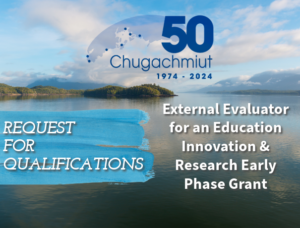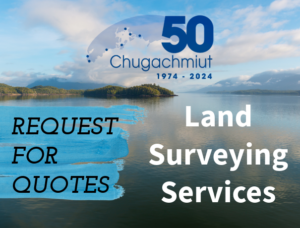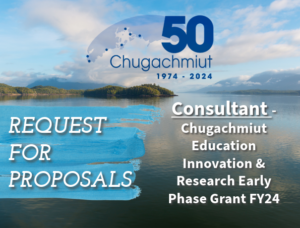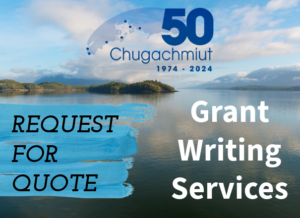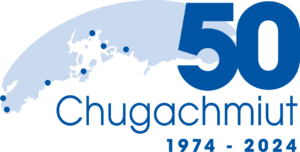Explore this week’s Money Monday Funding Opportunities newsletter from the Chugachmiut Grant Department for May 6, 2024! Discover the latest grant opportunities available. If you find a grant you’d like to pursue, please reach out to us at grants@chugachmiut.org or (907) 562-4155.
MONEY MONDAY NEWSLETTER
NOTE: Grants listed below are at least 6 weeks away from deadline to allow adequate time to prepare an application. If you see a grant you would like to pursue or want more information, email us at grants@chugachmiut.org.
COMMUNITY INFRASTRUCTURE
Active Transportation Infrastructure Investment Program
Department of Transportation, Federal Highway Administration
DEADLINE: June 17, 2024
AWARD: $100,000-$15,000,000; with match
ELIGIBILITY: Local or regional governmental organizations; multicounty special districts; states; multistate group of governments; or a tribe
The ATIIP grants will allow communities to identify, prioritize, and implement improvements to the largest barriers to safe, accessible, and equitable pedestrian and bicycle network connectivity through the development of infrastructure that will provide substantial additional opportunities for walking and bicycling. Eligible organizations will be able to create plans or implement active transportation networks that connect destinations within or between communities or create plans or implement an active transportation spine connecting two or more communities, metropolitan regions, or States. The ATIIP also provides an opportunity for eligible organizations to enhance their overall transportation network by integrating active transportation facilities with transit services, where available, to improve access to public transportation. (Link to grants.gov synopsis here.)
Environmental and Climate Justice Community Change Grants Program
Environmental Protection Agency
DEADLINE: Nov. 21, 2024
AWARDS: Track I grants are expected to be $10-$20 million; Track II grants are expected to be $1-$3 million each. No match.
ELIGIBILITY: To be eligible, applicants must be a partnership between two community-based nonprofit organizations or a partnership between a CBO and one of the following: a federally recognized Tribe, a local government, or an institution of higher education.
The Environmental and Climate Justice Community Change Grant program (Community Change Grants)
will fund community-driven projects that address climate challenges and reduce pollution while strengthening communities through thoughtful implementation. The EPA will consider applications under two separate tracks:
• Track I applications – Community-Driven Investments for Change will focus on multi-faceted applications with Climate Action and Pollution Reduction Strategies to meaningfully improve the environmental, climate, and resilience conditions affecting disadvantaged communities. Awards under Track I are expected to be $10-20 million each and cannot exceed $20 million. Examples of projects include Green infrastructure development, Energy efficient housing, Microgrid installation, disaster preparedness “community resilience hubs,” landfill work, workforce development, and more.
• Track II applications – Meaningful Engagement for Equitable Governance will facilitate the engagement of disadvantaged communities in governmental processes to advance environmental and climate justice. Awards under Track II are expected to be $1-3 million each. Track II applications should focus on breaking down systemic barriers to community participation in government processes impacting environmental and climate justice. This can be done by creating engagement and feedback mechanisms with two-way communications between community members and government decision-makers. Applications should focus on ways to provide disadvantaged communities with information about issues that directly impact them, while simultaneously creating mechanisms for the government to gather input to ensure community needs inform decision-making and are integrated into government processes and policies. (Link to grants.gov synopsis here.)
Home Electrification and Appliance Rebates Program for Indian Tribes
State and Community Energy Programs (SCEP) Inflation Reduction Act of 2022 Home Energy Rebates, U.S. Department of Energy, State and Community Program, Golden Field Office
DEADLINE: Rolling and open until May 31, 2025
AWARDS: Allocated by formula
ELIGIBILITY: Native American tribal governments (both federally recognized and other than federally recognized), non-profits, other
Eligibility: Indian tribes, a consortium of tribes or a tribally authorized third party agent
The U.S. Department of Energy’s Office of State and Community Energy Programs has up to $225 million to grant to Tribal governments and Alaska Native entities for Home Electrification and Appliance Rebates. This program will provide up to $14,000 per eligible household for energy efficiency and electrification home upgrades. It’s recommended to submit letter of intent to apply by May 15, 2024. To learn more information about the program and see a list of allocations, visit https://shorturl.at/mtBLX.
NATURAL RESOURCES
Tribal Wildlife Grant Program
Department of the Interior, Fish and Wildlife Service
DEADLINE: June 21, 2024
AWARDS: $10,000-$200,000; no match
ELIGIBILITY: Native American tribal governments (Federally recognized)The Tribal Wildlife Grant Program provides opportunities for federally recognized Tribes to engage in fish and wildlife conservation efforts on Tribal lands. Many of the TWG Program-funded project activities increase fish and wildlife populations, allowing for hunting and fishing opportunities on and off Tribal lands. Additionally, the TWG Program funds project activities that align and assist the Service with Endangered Species Act (ESA) conservation activities supporting species down-listing, delisting (removal from the list due to species recovery), and preventing new species listings under the ESA. (Link to grants.gov synopsis here.)
Rapid Response Fund for Aquatic Invasive Species
Department of the Interior, Fish and Wildlife Service
DEADLINE: July 15, 2024
AWARDS: $50,000-$960,000
ELIGIBILITY: State governments, Native American tribal governments (Federally
recognized)Department of the Interior is working with partners to identify, enhance, and collaborate on Early Detection and Rapid Response activities, build new tools, and support coordinated processes to proactively find and eradicate new invasive species before they establish, spread, and cause harm. Specifics include identifying high risk invasive species and invasion hotspots across the nation to inform early detection efforts, developing molecular tools to aid detection capabilities, expanding capacity for on-the-ground rapid response actions, including the establishment of a pilot Rapid Response Fund for aquatic invasive species, and creating an online clearinghouse where managers can share current information to guide implementation. The Rapid Response Fund addresses the need for readily available financial resources to assess and support response actions for quick containment or eradication of newly detected species. (Link to grants.gov synopsis here.)
National Fish Passage Program Base Funding Fiscal Year 2024
Department of the Interior, Fish and Wildlife Service
DEADLINE: Applications may be submitted continuously between March 1, 2024, and December 31, 2024
AWARD: $500-$1,000,000; no match
ELIGIBILITY: Native American tribal organizations (other than Federally recognized tribal governments), Native American tribal governments (Federally recognized) State governments, County governments, institutions of higher education, school districts, others
The National Fish Passage Program (NFPP) is a voluntary program that provides direct technical and financial assistance to partners to remove instream barriers and restore aquatic organism passage and aquatic connectivity for the benefit of Federal trust resources. Activities proposed under this award may include project planning and feasibility studies, engineering and design, permitting, on-the-ground fish passage restoration, near-term implementation monitoring, project outreach, and capacity to manage these project-related activities. (Link to grants.gov synopsis here.)
LANGUAGE & CULTURE
Historic Preservation Training Center Facility Management and Historic Preservation Emerging Professional Engagement
Department of the Interior, National Park Service
DEADLINE: July 3, 2024
AWARDS: $200,000-$400,000; no match
ELIGIBILITY: Institutions of higher education; Native American tribal organizations (Federally recognized AND other than Federally recognized); nonprofits; State and city governments; others
The program objective is to support and stimulate preservation trades and project work on NPS cultural resources through hosting pre-apprentice-style and pre-professional experiences for emerging professionals in the fields of facility management and cultural resource restoration and rehabilitation. Specifically, the program focuses on engaging existing students and graduates of trade schools focused on historic preservation skills and knowledge (such as those listed on The Campaign for Historic Trades website) or other facility relevant trades and fields (e.g. water/wastewater management, engineering, architecture, project management, etc.) and degree programs applicable to public land facility management who are looking for opportunities to apply their education to real-life projects. (Link here for full list and synopsis.)
Cultural Resources Management Services
Department of the Interior, National Park Service
DEADLINE: July 15, 2024
AWARDS: $25,000-$2,500,000; no match
ELIGIBILITY: Institutions of higher education; Native American tribal organizations (Federally recognized AND other than Federally recognized); nonprofits; State and city governments; others
The National Park Service seeks to work with partners to collaboratively conduct a variety of activities, including, but not limited to the named studies outlined in NPS-28: Cultural Resource Management Guideline: Archeological Identification/Evaluation Studies; Archival Records Management Plans; Collection Management Plan (CMP); Cultural Affiliation Study and Lineal Descent Studies; Cultural Landscapes Inventory (CLI); Ethnohistory and Ethnography; Exhibit Plan and Design (EPD); General Management Plan (GMP); Oral History interviews, transcription and archival processing; Park and Program Administrative History; Teaching with Historic Places Lesson Plans; more. (Link here for full list and synopsis.)
NEA Our Town, FY 2025
National Endowment for the Arts
DEADLINE: Aug. 1, 2024
AWARDS: $25,000-$150,000; match required (see below)
ELIGIBILITY: Institutions of higher education; Native American tribal organizations (Federally recognized AND other than Federally recognized); nonprofits; State and city governments; others
Our Town is the National Endowment for the Arts’ creative placemaking grants program. Through project-based funding, the program supports projects that integrate arts, culture, and design activities into efforts that strengthen communities over the long term. Successful Our Town projects demonstrate a specific role for arts, culture, and design as part of strategies for strengthening local communities, ultimately centering equity and laying the groundwork for long-term systems change tailored to community needs and opportunities. Cost share/matching grants range from $25,000 to $150,000, with a minimum cost share/match equal to the grant amount. (Link here for full list and synopsis.)
Forecast: Climate Smart Humanities Organizations
National Endowment for the Humanities
DEADLINE: Sept. 12, 2024 (estimated)
AWARD: Up to $300,000; 1:1 match required
ELIGIBILITY: Native American tribal governments (Federally recognized), nonprofits, state, town and city governments, and more.
The Climate Smart Humanities Organizations program supports comprehensive assessment and strategic planning efforts by humanities organizations to mitigate physical and operational environmental impacts and adapt to a changing climate. Projects will result in climate action and adaptation planning documents or similar detailed assessments including prioritized, measurable actions and their expected outcomes. Full funding announcement expected in June 2024. (Link here for full list and synopsis.)
Publishing Historical Records Collaborative Digital Editions
National Archives and Records Administration
DEADLINE: Nov. 2, 2024
AWARD: Up to $125,000 with match
ELIGIBILITY: Native American tribal governments (Federally recognized), nonprofits, state governments, institutions of higher education, others.
The National Historical Publications and Records Commission seeks proposals to publish online editions of historical records. All types of historical records are eligible, including documents, photographs, born-digital records, and analog audio. Projects may focus on broad historical movements in U.S. history, including any aspect of African American, Asian American, Hispanic American, and Native American history, such as law (including the social and cultural history of the law), politics, social reform, business, military, the arts, and other aspects of the national experience. Projects that center the voices and document the history of Black, Indigenous, and People of Color are especially welcomed. (Link here for full list and synopsis.)
Health
OVW Fiscal Year 2024 Training and Services to End Violence and Abuse of Women Later in Life Program
Department of Justice
DEADLINE: June 18, 2024
AWARD: Up to $750,000; no match
ELIGIBILITY: Native American tribal governments (Federally recognized AND other than Federally recognized tribal governments), nonprofits, state and local governments, others
The Training and Services to End Abuse in Later Life Program supports a comprehensive approach to addressing abuse in later life, including domestic violence, dating violence, sexual assault, stalking, neglect, abandonment, economic abuse, or willful harm committed against victims who are 50 years of age or older. (Link here for full list and synopsis.)
A Cultural Approach to Good Health and Wellness in Indian Country (GHWIC)
Department of Health and Human Services, Centers for Disease Control
DEADLINE: June 28, 2024
AWARD: $300,000-$1,450,000; no match
ELIGIBILITY: Native American tribal governments (Federally recognized AND other than federally recognized), others
Leading with culture, A Cultural Approach to Good Health and Wellness in Indian Country (GHWIC) strategies combine (1) community-chosen cultural practices that are family centered to build resilience and connections to community, family, culture, and wellness; (2) policy, systems, and environmental changes (PSE) to build clinical-community linkages (CCLs) to support screening and assessing for chronic diseases and their risk factors (commercial tobacco use, diabetes and pre-diabetes, hypertension, obesity, and oral disease), and making referrals to clinical care, community-based organizations, and/or social service organizations for evidence-based and evidence-informed chronic disease prevention and management programs, including self-management and self-monitoring; and (3) PSEs and programs that promote wellness, prevent disease, and address nonmedical factors that influence health outcomes (built environment, food and nutrition, tobacco-free policy, and social connectedness), in a culturally appropriate manner. (Link here for full list and synopsis.)
ABOUT THE MONEY MONDAY NEWSLETTER
The Money Monday newsletter is a weekly publication by the Chugachmiut Grants Department that highlights funding opportunities that may be relevant to tribes in the Chugach Region. Subscribe by contacting us at grants@chugachmiut.org. You can also download the newsletter at chugachmiut.org or check out our Facebook page.
